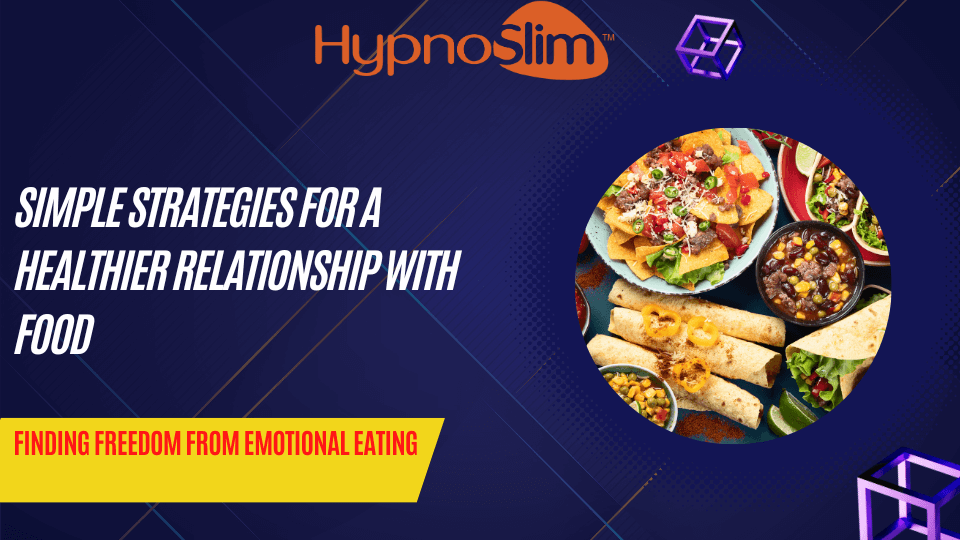Finding Freedom from Emotional Eating: Simple Strategies for a Healthier Relationship with Food
I want to talk to you about something that many people struggle with emotional eating. You know, those times when you reach for that bag of chips or crisps or that pint of ice cream not because you're hungry, but because you're feeling stressed, sad, or even bored? Don't worry, you're not alone – many of us have been there.
What is Emotional Eating and Why Do We Do It?
Emotional eating is when we turn to food to comfort ourselves or deal with our feelings, rather than to satisfy hunger. It's like a friend that's always there when we need a pick-me-up. Was it a stressful day at work? Ice cream. Argument with a friend? Chocolate. This habit often forms as a way to cope with emotions, providing temporary relief.
However, it doesn't really address the underlying issues, and it can lead to an unhealthy cycle.
Common Triggers for Emotional Eating
Recognising your triggers is the first step to gaining control over emotional eating. Some common triggers include:
- Stress: Tight deadlines, busy schedules, or personal challenges can push us towards comfort foods.
- Sadness: Feeling down? That bowl of cheesy chips might seem like a comforting solution.
- Boredom: When there's not much to do, snacking can become a way to pass the time.
- Celebrations: Yes, imagine! Even happy occasions can trigger emotional eating, as we associate food with reward and joy.
Reducing Emotional Eating: Practical Tips
Here are some simple strategies to help you break free from the emotional eating cycle:
- Mindful Awareness: Tune in to your emotions before reaching for that snack. Ask yourself if you're truly hungry or if something else is bothering you. Mindfulness can help you pause and make conscious choices.
- Keep a Food Diary: Documenting what you eat and how you feel before and after can shed light on patterns. Over time, you'll notice connections between your emotions and eating habits.
- Find Healthy Outlets: Instead of turning to food, explore other activities that can lift your spirits – take a walk, call a friend, practice deep breathing, or engage in a hobby you love. Play an instrument or listen to someone else play!
- Plan Balanced Meals: Ensuring your regular meals are balanced with nutrients can stabilise your blood sugar levels and reduce the urge to snack on empty calories. Failure to plan is planning to fail!
- Create a Support System: Open up to friends, family, a therapist or a hypnotherapist about your emotional eating struggles. Sometimes, sharing your feelings can provide the relief you need.
- Practice Self-Care: Engage in activities that nurture your well-being, like getting enough sleep, staying hydrated, and getting regular exercise.
- Pause and Reflect: Before eating, give yourself a moment to check-in. Are you really hungry? Is this the best choice for your body and emotions right now?
Remember, breaking free from emotional eating is a journey, not a destination. Be patient with yourself and celebrate small victories along the way. By implementing these strategies, you can start building a healthier relationship with food and discover new ways to handle your emotions effectively.
So, next time you find yourself reaching for that bag of chips, pause, take a deep breath, and consider if there might be a better way to deal with what you're feeling. You've got this!
